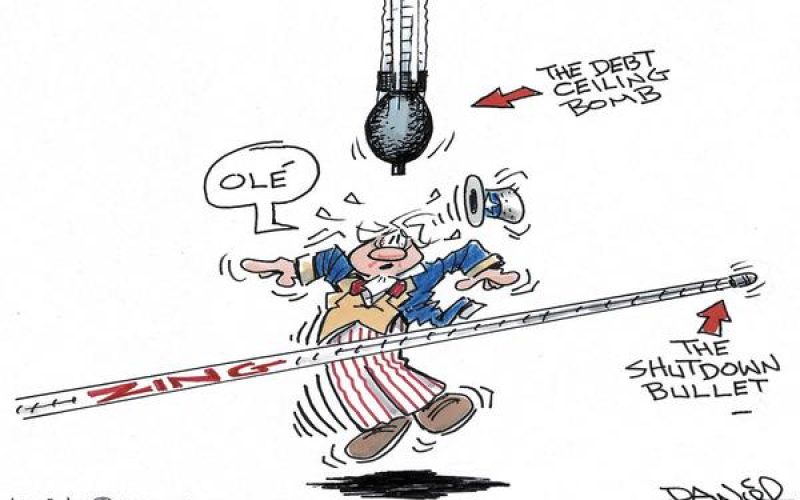Here we go again. As if the federal government shutdown isn’t bad enough, the U.S. government now has to start facing the issue of whether or not to raise the debt ceiling. This time the deadline is October 17th.
Although perhaps well intentioned, this is really silly legislation. First, it isn’t even necessary. The debt ceiling is self-imposed by the U.S. – no external borrower is demanding this at all. Typically it’s the market’s job to determine a borrower’s credibility and assign a risk premium that reflects whether or not it has exceeded an acceptable level of debt. Wouldn’t a government be better off reducing its debt on its own well thought-out terms as opposed to doing so at an arbitrary date and by an arbitrary amount?
Second, it is impossible to say what the “right” level of indebtedness is for the U.S. – it’s different for every country. A country that is economically strong, has a growing population base, a flexible workforce, etc. may be in a position to assume relatively high debt levels for a certain period of time. Compared to other countries that are in much worse fiscal situations (e.g. Japan) the U.S. seems like a decent candidate to be allowed the time and the leeway to get its debt under control.
Third, it is important to remember that raising the debt ceiling would not result in new spending. Rather, it would only allow the government to honour the obligations it has already made – obligations that were promised over the years by Republicans and Democrats alike to a wide array of groups, including veterans, those on Social Security, etc.
While we are the first to admit that the trend to bigger government seems to have gone too far, this fiasco is based on dysfunctional politics, not sound policy. The Republicans are trying to extract concessions in exchange for their support, insisting that any increase in the debt ceiling be linked to spending cuts or some other item that benefits their agenda. Specifically, they are trying to dismantle a program that Congress passed, the President signed, and the Supreme Court upheld — the Affordable Care Act. Isn’t it a bit late for that?
And make no mistake, the consequences of not raising or eliminating the debt ceiling are grave. Effectively the government will have to decide who it will and will not pay with its available cash. This uncertainty alone will likely inflict significant pain in both the public and private sectors of an already struggling domestic economy, not to mention the potential impact the uncertainty could create in the Treasury bond market.
Although Congress has set an upper limit on its allowable national debt since 1917, I doubt they ever foresaw that politics would get in the way of good government. Let’s hope clearer minds prevail in the coming weeks – they should because the alternative will not be pleasant.
Jamie Hyndman
- See more at: http://www.mawer.com/knowledge-centre/mawer-blog/til-debt-do-us-part/#sthash.mnZcTvHU.dpuf














